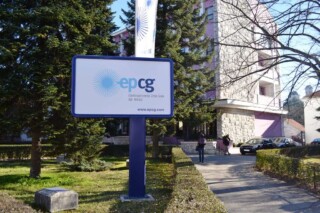Deputy Assistant Secretary at U.S. Department of State –Bureau of European and Eurasian Affairs, Mr Matthew Palmer, said in the interview for Pobjeda that Russian aggression and its destabilizing meddling remained the biggest threats to European security.
“Coup attempt planned on the day of parliamentary elections in Montenegro in 2016, is just one of many examples of Russian obstruction of other countries’ democratic aspirations”, says Mr Palmer.
Pobjeda: You’ve said recently that the USA have always been committed to WB. How will the USA demonstrate that commitment in the future?
Mr Palmer: The USA stay committed to open and responsible governments, rule of law and economic prosperity in the Western Balkans. Since 2010 , we have provided more than €1,8 billion of financial assistance to WB and we will keep encouraging every country that wants to achieve that objective called “European future”. We do that through several channels, including: support for strong open democratic institutions, independent judiciary, regional security, media freedom, variety of energy resources, and strengthening economic ties. Hopefully, a flag of North Macedonia will be hoisted in the NATO headquarters in the near future.
Pobjeda: How much has the security situation in the region changed over the years, after Montenegro had joined NATO and North Macedonia started the NATO accession negotiation process?
Mr Palmer: During one of his visits to Podgorica, in 2017, Vice-President Mr Pens said briefly: “We share the joint future of security and prosperity. Future of no limits and freedom, united in this huge community of nations”. The US objective has been consistent for two decades – and that is successful and stable WB, harmonized with the values we share, fully integrated into Western institutions and and strong enough to resist external, harmful influences.
WB countries have made significant steps forward: with the Prespa Agreement, Croatian EU membership, and opening EU accession negotiations with Serbia and Montenegro; with Montenegro, Croatia and Albania becoming NATO members… Ensuring brighter future of the region requires that its leaders continue the dynamics of the success, speed up the reforms and improve the integration into the western structures.
Pobjeda: Do you think external threats, Russian influence primarily, have become weaker in the last two years? Or that influence might take on some other shape in the future?
Mr Palmer: Russian aggression still remains the biggest threat to European security.
Russia has become more than just external or military threat. The Kremlin is orchestrating operations in the heart of the western world, with the aim of influencing the national security, political stability, social cohesion and economic progress. Moscow is working on destroying the credibility of the US commitment to Europe, undermining transatlantic unit, creating discord in western societies and weakening western democratic institutions and governments.
Pobjeda: What do you think about the increasing influence of other states? It’s not necessarily political influence, but rather economic, exerted through investments. For example, influence of China and its presence in the region?
Mr Palmer: We welcomed economic growth and development of China. We encouraged China to become responsible participant in the international system.
China is oriented towards Europe , invests in key industries. Many Chinese investments and projects in the region aren’t transparent enough. They aren’t sustainable in economic sense. The USA and Europe are actively encouraging countries to consider the true price of Chinese investments. American and European companies aren’t allowed to access Chinese market. And while China is building telecommunication infrastructure, it’s simultaneously expanding technology and techniques which serve to governments that don’t respect human rights – for supervision and restriction of freedom of expression on the Internet. Such trends are disturbing and West can’t just stand still.
Priština should abolish tariffs
Pobjeda: Do you believe that the EU can solve the issue of Kosovo and relations between Belgarde and Priština? Will France and Germany take more active role with the support of the USA?
Mr Palmer: We really support endeavors to normalize relations between Serbia and Kosovo, as it would forge the way to European integration for both countries. Mutual recognition would be an ideal solution – key part of any agreement. We’re in contact with the leaders in Belgrade and Priština, and we’re encouraging them to reach an agreement and keep going forward towards brighter and more prosperous European future.
Pobjeda: You said that Belgrade and Priština should restart negotiations as soon as possible. Can international community set a deadline for the beginning of negotiations?
Mr Palmer: Any agreement requires time framework. International community shouldn’t define parameters of the agreement, parties involved should do so. We will carefully consider any agreement, provided that it’s long-term, applicable and that it contributes to regional stability. We want to see both sides doing their best to come to an agreement as soon as possible. The first step is eliminating barriers to progress, including tariffs.




